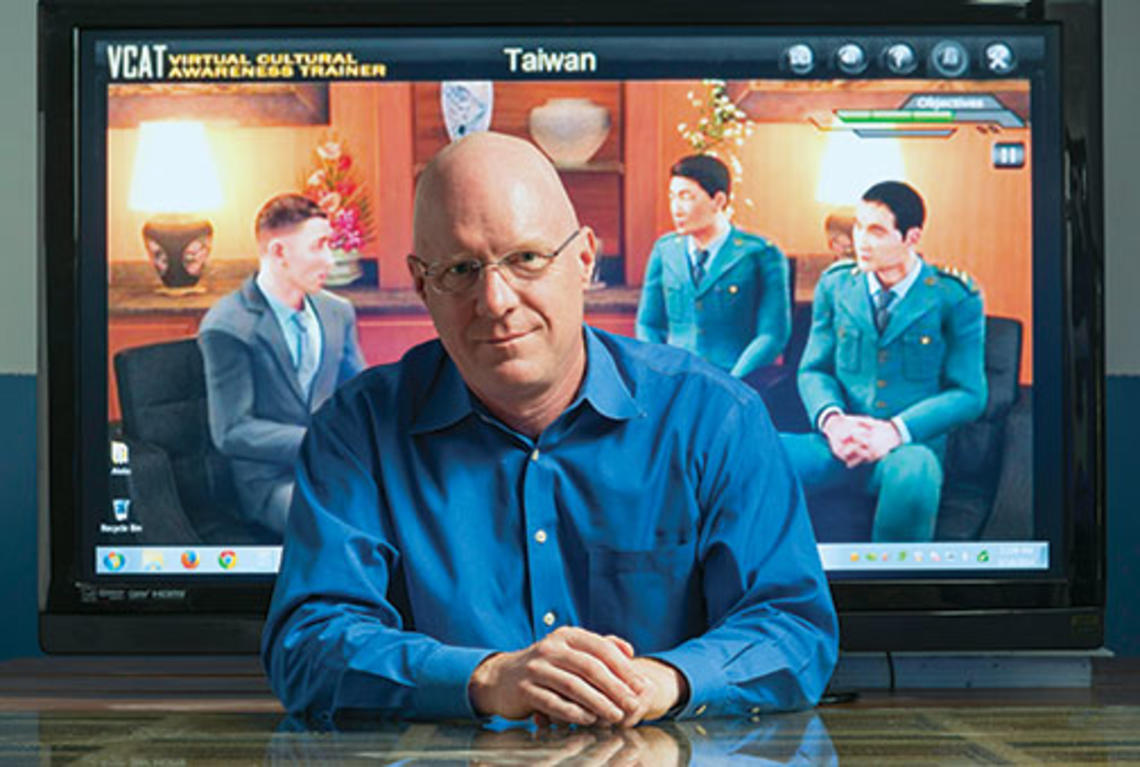W. Lewis Johnson ’78: Video Games for Soldiers
Alum’s company builds avatars to teach language and culture

Anyone who doubts that video games can teach cultural awareness and language — including the correct pronunciation of salaam alaikum — hasn’t met W. Lewis Johnson ’78. His Los Angeles-based company, Alelo, creates games that have allowed more than 30,000 soldiers from the United States and other NATO nations to navigate virtual versions of the countries where they’re deployed.
One scenario drops the soldier’s avatar into a Taiwanese banquet, where the host raises a glass. The soldier has to decide whether to toast with hard liquor or tea, a culturally acceptable but non-intoxicating substitute. Other scenarios are more serious, such as keeping local Timorese out of a dangerous area where a bridge is being repaired.
Johnson was a professor and the director of the Center for Advanced Research in Technology for Education at the Information Sciences Institute of the University of Southern California when the Defense Advanced Research Projects Agency (DARPA) commissioned him to create instructional software in 2003. DARPA saw the need for U.S. soldiers to better understand Iraq and Afghanistan, as well as the potential of game-based instruction to be more cost-effective and efficient than training in a traditional classroom. Two years later, Johnson co-founded Alelo.
The company developed language and culture programs in Iraqi Arabic, Pashto, and Dari, and requests poured in for training for Central and South America, the Caribbean, Taiwan, Southeast Asia, and Africa. The military supplies about 75 percent of Alelo’s business.
Johnson believes that this training saves lives. During the Iraq War, a commander required that two Marines in each of his battalion’s squads complete 40 hours of training in Arabic language and culture. “They were the first Marine battalion that returned from Iraq, from a tour of duty, without a single combat fatality,” says Johnson. “When those Marines arrived in Iraq ... they showed that they cared.”










0 Responses